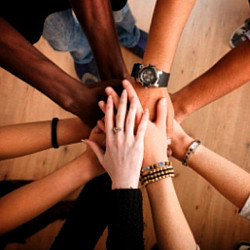Technical Assistance

NCVLI is the training and technical assistance provider to the Networks and has brought together organizations and individuals with expertise across the spectrum of Victim Law to aid with training and technical assistance.
As part of its training and technical assistance to the Networks, NCVLI offers regular online trainings to enhance practitioners’ ability to respond to victims’ myriad legal needs. This training calendar identifies the topics for this year’s trainings; dates are confirmed unless otherwise noted. More detailed information, including speaker bios, will be distributed as it becomes available.
Additional resources can be found in our Victim Law Library.
Our Training and Technical Assistance Partners Include:
- ABA Commission on Domestic & Sexual Violence
- Coalition to Abolish Slavery and Trafficking
- Maryland Crime Victims Resource Center Inc.
- National Child Advocacy Center
- Stalking Resource Center
- Tribal Law and Policy Institute
- Other Experts as Needed
ABA Commission on Domestic & Sexual Violence. Founded in 1994, the mission of the American Bar Association Commission on Domestic & Sexual Violence is to mobilize, train and provide resources to lawyers, law students, and other legal advocates so they may increase access to justice for victims of domestic violence, sexual assault and stalking. The acute and unique needs of these victims may include a wide range of civil legal needs, including housing, employment, protective orders, and torts. To increase the capacity of the legal field to address these needs, the Commission provides resources, trainings, six listservs on different topics, case summaries, and technical assistance aimed at providing “effective and holistic client-centered representation” that extends beyond civil protective orders.
Coalition to Abolish Slavery and Trafficking. The Coalition to Abolish Slavery and Trafficking (CAST) assists trafficked persons, both domestic and foreign born, so that more victims will be free and empowered. Using a client-centered approach, CAST assesses and provides survivor specific assistance, including emergency needs, such as housing, clothing, food, and safety; followed by a comprehensive assessment and legal interview with an emphasis on providing information and education so survivors can make informed decisions. CAST is the only organization in the country providing social, shelter, and legal services to trafficking victims. In particular, CAST provides “critical legal services that assist victims in navigating complex criminal, civil, immigration, and other legal proceedings that ultimately deliver the person to full status and work authorization.
Maryland Crime Victims Resource Center Inc. The Maryland Crime Victims Resource Center Inc. (MCVRC) is a nonprofit dedicated serving crime victims. MCVRC serves victims of all types of crime with a diverse collection of services including criminal justice education, court accompaniment, social services, support groups, community education, national identity theft leadership, legal information and assistance, direct legal representation, policy advocacy, technical assistance for allied professionals and criminal justice agencies, and faith-based referrals. Direct legal assistance has been provided not only in Maryland but also in federal courts across the country as well as in military court. Collaborating with others, MCVRC has utilized technology internally as well as to facilitate legal self-help to victims across the country. MCVRC staff provides training and technical assistance nationwide including regarding responding to and assisting victims of identity theft and fraud. MCVRC will bring its expertise in identity theft and fraud to bear on this project.
National Child Advocacy Center. National Children’s Advocacy Center (NCAC) was the first children’s advocacy center (CAC) in the world and has led the development of these efforts for almost thirty years. Success is demonstrated by the fact that there are now more than 850 CASs in the United States and programs operating in 19 countries throughout the world. The NCAC’s Training Center annual trains more than 5,000 child abuse professionals, and the NCAC’s website, including the Child Abuse Library Online, is accessed more than 30,000 times per year. NCAC has tremendous expertise in working with children who have been abused/neglected, and also coordinating a multidisciplinary response.
Stalking Resource Center. The Stalking Resource Center (SRC), a program of the National Center for Victims of Crime, was founded in 2000. The mission of the SRC is to enhance the ability of professionals, organizations, and systems to effectively respond to stalking. The Stalking Resource Center envisions a future in which the criminal justice system and its many allied community partners will have the best tools to effectively collaborate and respond to stalking, improve victim safety and well-being, and hold offenders accountable. Since its inception, the SRC has trained and provided technical assistance to over 100,000 professionals who work with victims in all 50 states, the US Territories, the District of Columbia, the United Kingdom, and Germany.
Tribal Law and Policy Institute. The Tribal Law and Policy Institute (TLPI) is a Native American owned and operated nonprofit promoting access to justice in Indian country through education, research, training, and technical assistance programs. Through partnerships and resource sharing with other academic, legal, and judicial resources, TLPI increases access to cost effective resources which can be adapted to meet the individual needs of Indian Nations and tribal justice systems. This collaborative approach links tribal justice systems with a broad range of judicial and legal institutions has established TLPI as a national resource to address the impact of crime in tribal communities and the unique needs of Native American victims of crime.
Expert Consultants. Also available to the Networks are a variety of consultants with expertise in the unique needs of various victim populations and various professional fields complementary to law. Through its national work NCVLI has established intensive partnerships with individuals and organizations who possess the requisite expertise; specific consultants will be selected as needs arise.
This project was supported by Grant No. 2014-XV-BX-K013, awarded by the Office for Victims of Crime, Office of Justice Programs, U.S. Department of Justice. The opinions, findings, conclusions or recommendations expressed in this document are those of the author(s) and do not necessarily represent the official position or policies of the U.S. Department of Justice.